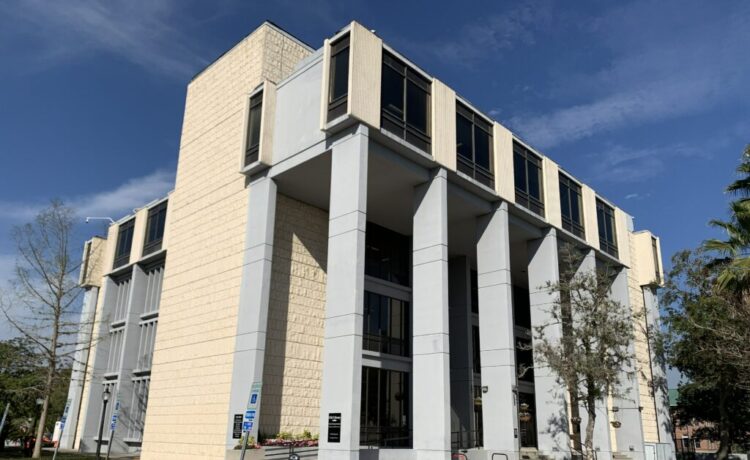The Gainesville City Commission reallocated $850,000 in funds Thursday to address homelessness and gun violence.
The funds come from the American Rescue Plan Act (ARPA) that the federal government dispersed after the COVID-19 pandemic. Gainesville received $32 million that was earmarked for various projects and initiatives, however some projects fell through and others needed less money than projected.
Commissioner Casey Willits made the motion to move $660,000 in unused ARPA funds from an affordable housing project to bolster homeless services. City staff said the ARPA affordable housing project stopped after the city bought the land for conservation instead.
Another $40,000 in APRA funds was moved from Gainesville’s administration services to a total $700,000 for homelessness.
A separate motion, also by Willits, moved another $150,000 from the administration services to create standalone gun violence programming.
The motions came after several public commenters addressed a homeless encampment on SE Fourth Place.
Multiple speakers said they worried walking through the area. One commenter who lives near the site said she had trained her dogs to pee in the shower so that she didn’t need to walk them at night.
Gainesville staff presented a report on everything the city does to address homelessness along with actions by Alachua County, the Continuum of Care and other local nonprofits.
The City Commission also asked for Jon DeCarmine, executive director of GRACE Marketplace, to speak. He said GRACE staff had already visited the site to begin directing the people to the Continuum of Care—through which all Alachua County partners coordinate their care.
DeCarmine said there are around 15 tents at the site with 20 to 30 people.
According to the Gainesville Sun, the people moved to SE Fourth Place after getting moved out of Haisley Lynch Park, just down the street. However, much of Thursday’s conversation centered on the limits Gainesville faces when trying to move homeless people.
City attorney Dan Nee said Gainesville can’t force homeless neighbors to leave an area for sleeping there if it doesn’t provide a place for those people to be able to sleep. Meaning without available beds in shelters, the city can’t force people to move for being homeless.
The city can still enforce laws like open burning, blocking private right of way, littering, open containers of alcohol, narcotics possession and incidents of violence.
“We’re not acting against homeless people when we are removing violent people from those camps,” DeCarmine said. “We are acting for their benefit.”
DeCarmine added that GRACE Marketplace lacks open beds. The shelter does have extra space that could be used for more beds, but that requires funding.
Thursday’s motion could provide that funding, but staff mentioned that beds are more than one-time expenses. The support staff needed for extra beds requires annual funding.
Gainesville reduced its funding for GRACE in the current fiscal year following budget constraints. Alachua County filled the hole for GRACE’s outreach team, and GRACE made up a large portion of the missed funding on the shelter side.
Ward again stressed on Thursday that other government entities will need to step up to address homelessness. He noted that it’s not just a Gainesville problem, but one that ends up on the city’s doorstep from other parts of Alachua County.
“We don’t need you to send your thoughts and prayers,” Ward said. “We need you to send checks. We need you to step up. Because if you’re an elected official in Alachua County, you are partially responsible for this.”
Yearly survey data shows a rise in homeless individuals in the past three years. The number of unsheltered homeless persons increased from 272 in 2021 to 318 in 2022 and 417 in 2023.
The 2024 survey was done a few weeks ago and the data is still being compiled.
Deputy Fire Chief Joseph Hillhouse said two people have been arrested and another two placed under the Baker Act in the past couple weeks for starting unauthorized brush fires.















